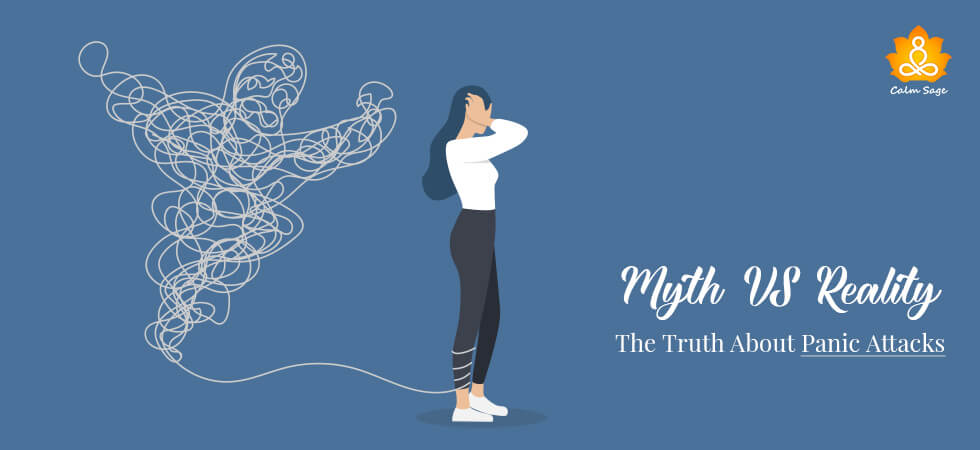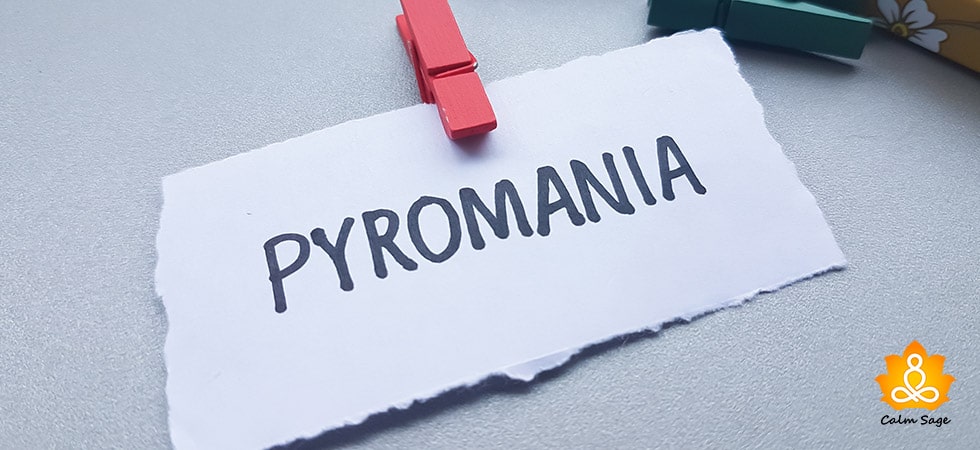6 Common Myths and Facts About Panic Attacks

Panic Disorder is one of the common mental health conditions that can be defined as – a person experiencing recurring and unexpected panic attacks related to anxiety and fear. People who struggle with anxiety disorders may experience panic attacks triggered by a specific event or stressful situations.
Unfortunately, there are many misconceptions regarding panic disorders that people usually believe in. These myths about panic disorders can prevent someone from seeking professional help.
In this article, we’ll explore some of the myths and facts about panic Attacks that you should be aware of. But first, let’s begin by understanding what is panic disorder and what causes panic attacks.
Brief Overview Of Panic Disorder
Panic disorder is a mental health condition that occurs when you experience recurring panic attacks. Panic attacks can be described as a sudden rush of fear or intense discomfort. When a person experiences a panic attack they experience physical and mental symptoms such as:
- Racing heartbeat
- Heart palpitations
- Dizziness
- Nausea
- Hot flashes or chills
- Trembling or shaking
- Derealization or depersonalization
- Chest pains
What causes panic attacks?
The causes of panic attacks can be genetic or can be related to major lifestyle changes or transitions a person experiences. For example, getting married, leaving for school, having children, changing jobs, etc. All of these major life events can cause stress and anxiety which, in turn, can cause panic attacks.
Can panic attacks be treated?
With the help of psychotherapy and medications, panic disorders can be manageable. Cognitive-behavioral therapy (CBT) is one of the most preferred psychotherapy treatments that can help in regulating the symptoms of panic attacks.
Panic Attacks: Myths vs Reality
Myth #1: Panic attacks and anxiety attacks are the same things.
Reality: While panic attacks and anxiety attacks are not the same things, anxiety can be a trigger for a panic attack. Anxiety can be described as feeling uneasy, nervous, and worry over a stressful situation. Almost everyone experiences anxiety at one point in their life – either related to work, school, or personal life.
Panic disorder is a type of anxiety disorder that causes a person to experience frequent panic attacks. These attacks can be triggered by certain situations and can be related to anxiety. If you have an anxiety disorder, you may be prone to panic attacks but it is important to note that not all anxiety disorders cause panic attacks.
Myth #2: All panic attack symptoms are alike.
Reality: Panic attack symptoms are different for everyone and more often than not depend on a person’s experience. Many people believe that if someone is struggling with a panic attack, they are likely to faint. While fainting is one of the symptoms of a panic attack, not everyone experiences fainting while in the middle of a panic attack.
The symptoms of panic attacks differ from person to person. While you may experience shaking, trembling, hot flashes, or nausea, someone else may experience racing heartbeat, heart palpitations, or chest pains.
Myth #3: Panic attacks are an over-dramatic reaction to anxiety and stress.
Reality: Panic attacks can be experienced by anyone, anytime regardless or not if they have a mental health disorder. While stress and anxiety can be the onset of a panic attack, they are not an overreaction. Panic disorder is a real and serious condition and making it seem like an over-dramatic reaction to stress and anxiety takes away the seriousness of the condition.
An increase in stress and anxiety levels can trigger a panic attack. And more often than not, panic attacks occur without a warning. Experiences such as abuse, abandonment, losing a loved one, losing a job, or financial stress can all trigger a panic attack.
Also Read: Why are Stress and Anxiety Becoming So Common Today | Alarming Facts
Myth #4: People with panic disorder are on and will be on medications for the rest of their lives.
Reality: While medications are one of the treatment options for panic disorder, it is not necessary that all people are on medications or will be. Each person’s experiences are unique and so is their treatment. For example, CBT therapy can be used to treat or manage symptoms of panic disorder but sometimes a therapist may prescribe certain medications with CBT to help manage panic attacks.
Myth #5: Panic attacks may cause a person to lose control.
Reality: If someone is having a panic attack, they may feel out of control but not necessarily lose control of their senses. A panic attack may lead a person to feel different mental and physical symptoms and these symptoms can be overwhelming causing a person to fear that they might lose control.
Even though a panic attack may cause overwhelming feelings, they do not cause a person to lose control over their senses and reality.
Myth #6: Only people diagnosed with panic disorder can experience panic attacks.
Reality: As I’ve mentioned above, anyone, at any time can experience panic attacks, even if they’re not diagnosed with a mental health disorder. Although, some people are more prone to experience panic attacks, especially if they have a family history of panic disorders, abuse, or trauma.
People diagnosed with the following disorders are more prone to panic attacks than others:
Even if you aren’t diagnosed with these disorders, you can still experience panic attacks. Job stress, school stress, financial stress, or other stressful events can all trigger panic attacks.
Final Thoughts
Panic disorder and panic attacks are real and serious mental health conditions that shouldn’t be ignored. The important part in spreading awareness and removing the stigma surrounding mental health illnesses is to understand the difference between myths and reality.
I hope that this article helped you understand the truth about panic attacks and myths about panic disorder.
If you or your loved one is struggling with panic disorder, then it is recommended that you seek professional help, immediately. For more, you can contact us at info@calmsage.com or connect with us on our social media pages.
Until then, take care of yourself and stay safe.




















